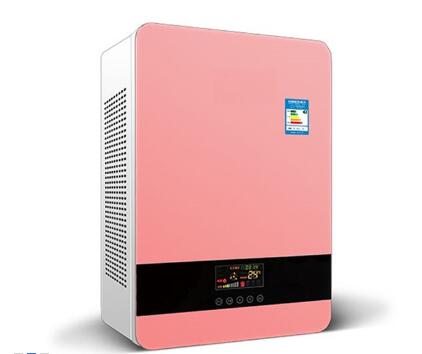In the realm of water heating technology, induction heating water boilers have emerged as a groundbreaking innovation. These advanced appliances utilize electromagnetic induction to provide efficient, precise, and rapid heating of water. In this article, we will delve into the features and advantages of induction heating water boilers and explore why they are considered the future of water heating.
Induction heating water boilers operate on a principle known as electromagnetic induction. Within the boiler, a copper coil is energized with alternating current, generating a rapidly changing magnetic field. As water passes through the coil, the magnetic field induces electrical currents within the water, resulting in direct and efficient heating.
One of the primary advantages of induction heating water boilers is their exceptional energy efficiency. The direct transfer of energy from the electromagnetic field to the water eliminates the need for traditional heating elements or burners, which often experience energy loss. Induction heating allows for rapid and precise heating, reducing standby time and minimizing heat loss during the process. This high level of efficiency translates into significant energy savings and reduced operating costs for users.
Precise temperature control is another notable feature of induction heating water boilers. Advanced control systems integrated into these boilers enable users to set and maintain the desired water temperature accurately. The precise temperature control ensures that hot water is readily available on demand, eliminating the need for continuous heating. This not only enhances convenience but also contributes to energy conservation by avoiding unnecessary heating cycles.

Induction heating water boilers are designed with compactness and space efficiency in mind. Compared to traditional water heaters, these boilers often boast smaller footprints and lighter weights, making them ideal for installations in limited spaces. Their compact size allows for flexible placement options, making them suitable for a variety of residential and commercial applications.
Suggested reading:Rapid heating capabilities are a key advantage of induction heating water boilers. Thanks to the direct transfer of energy, water heats up quickly within these boilers, providing hot water almost instantaneously. This feature is particularly advantageous in scenarios where there is a high demand for hot water, such as hotels, restaurants, or busy households. The rapid heating not only saves time but also enhances the overall user experience.
Safety is paramount in any heating appliance, and induction heating water boilers excel in this aspect. With no open flames or combustion processes involved, the risk of accidents or gas leaks is significantly reduced. Induction heating eliminates the possibility of carbon monoxide emissions, ensuring a safer environment for users. Moreover, these boilers often incorporate built-in safety mechanisms like overheat protection and automatic shut-off systems, further enhancing their safety profiles.
Durability and longevity are additional strengths of induction heating water boilers. Since no heating elements come into direct contact with the water, the risk of scaling or corrosion is minimized. This extends the lifespan of the boiler and reduces the need for frequent maintenance or replacement. The durability of induction heating water boilers ensures long-term cost savings for users.
In conclusion, Hitfar induction heating water boilers represent the future of efficient and advanced water heating technology. Their exceptional energy efficiency, precise temperature control, compact design, rapid heating capabilities, and safety features make them a superior choice for residential and commercial applications. By investing in an induction heating water boiler, users can enjoy substantial energy savings, enhanced convenience, and peace of mind. Consider your specific heating needs and consult professionals to determine if an induction heating water boiler is the ideal solution for your requirements.
Related Articles
Comments
Please Join Us to post.
0